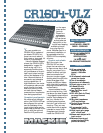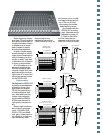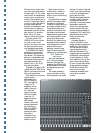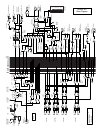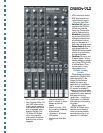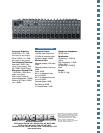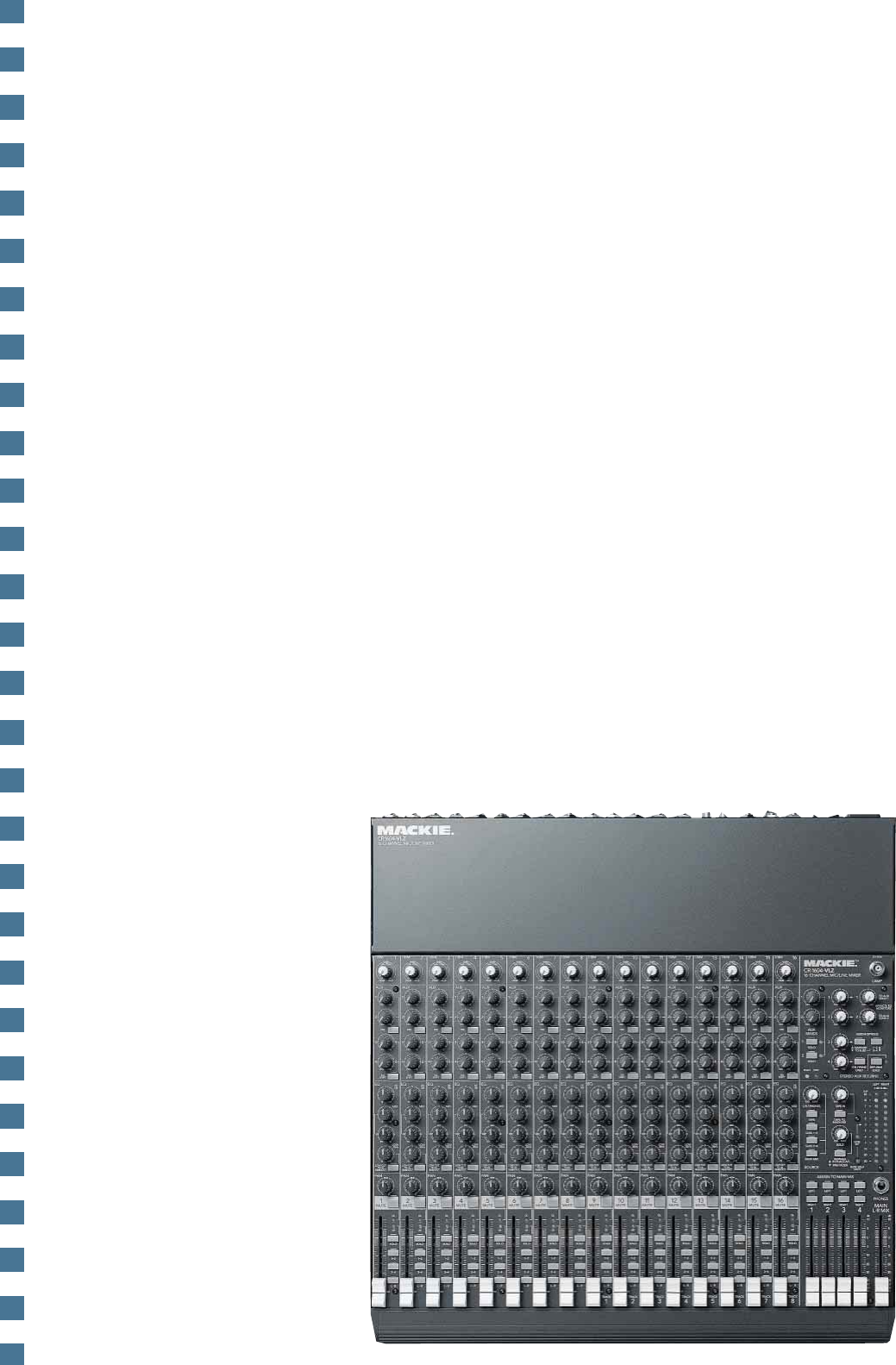
Phones source matrix lets
you route any combination
of tape, subs 1-2, 3-4, main
mix or Aux 4 to headphones,
control room outputs, and
meters. This enables you to
monitor 2-track tape output
or route a click/cue track to
phones, create special
phones or broadcast mixes
via the subs, or create an
extra stereo mix (with its own
gain control) for another
zone, like a cry room,
lobby, or other such place.
For that matter, the
CR1604-VLZ’s mono main
out has its own level
control, so a mono mix can
be sent to another zone
and adjusted accordingly.
The CR1604-VLZ has six
aux sends, in a four-knob
per channel strip scheme.
Aux Sends 1 & 2 are switch-
able pre- or post-fader, and
the next two knobs can be
switched between Aux
Sends 3 & 4 or 5 & 6 (all
four are post-fader).
Playback of a tape or CD
is easy with the 1604-VLZ’s
Tape In volume control and
two routing switches.
Solo has its own volume
control and is
switchable from
AFL (In-Place) to
PFL. Level setting
is easy in PFL,
especially when
used in conjunc-
tion with the
mixer’s level set
LED and marker
(near the 12-
segment stereo
LED ladder).
Check a channel’s
stereo placement
by switching to
AFL; the CR1604-
VLZ’s constant-
power pan pots
maintain a
consistent loud-
ness across the
stereo horizon.
Each channel has a
mute button, making it
easy to mute a source
when it’s not contributing
to the mix.
Log-taper 60mm faders
deliver a consistent fade
throughout the fader’s
throw, so choppy fade-ins
and fade-outs are history.
These faders have a co-
polymer membrane that
provides a continuously
sealed barrier against dust
and liquids without inter-
fering with fader travel.
Similarly, the fader’s long-
wearing contact material
(first designed for use in
exterior automotive
sensors) means longer
fader life and improved
resistance to the elements.
VLZ, Headroom,
and more.
Very Low Impedance –
VLZ – isn’t just a catchy
acronym, it’s a fact. We
designed the CR1604-VLZ
so that noise is minimized
and dynamics are maxi-
mized.
The noise created by
many channels running
simultaneously can really
add up (it’s called “thermal
noise,” and has something
to do with temperatures,
atoms and the like).
Mackie decreases thermal
noise by making internal
impedances as low as
practical, in as many places
as possible inside the
mixer. Our robust power
supply delivers the high
current levels necessary to
implement VLZ, resulting in
astonishingly low noise
levels, and minimal
crosstalk, too.
Likewise, Mackie’s
internal UnityPlus circuit
design allows for maximum
headroom. The CR1604-
VLZ can handle multiple,
intense signals without
distortion because of its
negative gain mix amplifier
architecture. Channels are
mixed together at –6dB,
then restored to unity. This
gives the mixer the ability
to sum 4 times the number
of signals before clipping.
That’s about double the
amount of mix amp
headroom available with
many other compact
mixers.



